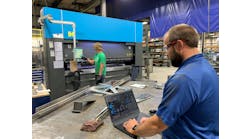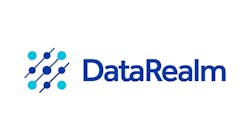November was a good month for fieldbus fans. The Fieldbus Foundation released its Foundation fieldbus H1 Interoperability Test Kit (ITK) 6.1.1, an advanced testing solution for developers and end users of Foundation fieldbus H1 devices. Within days of that release, the foundation announced the first public release of FDI Cooperation, LLC's Field Device Integration (FDI) specification and a demo of the FDI developer toolkits, both of which will make it possible for automation suppliers to prepare for developing products and host systems compatible with FDI.
This release of the Interoperability Test Kit includes 64-bit Microsoft Windows support. The full H1 suite of testing tools, including the Automation Toolkit, is now compatible with modern 64-bit testing systems. Updated test cases for various function blocks and transducer blocks are available to maintain compatibility and fix bugs.
The H1 ITK consists of a test engine, communication stack and function block interface card. It includes all hardware and software required to ensure complete device interoperability. By using the H1 ITK, instrument manufacturers can thoroughly test their devices prior to submitting their product for official registration with the Fieldbus Foundation.
The FDI specification is a step forward in FDI Cooperation's goal of making the multiple fieldbus protocols better able to work together and enable vendors to offer products that will work with multiple fieldbus protocols.
At the core of the FDI specification is the FDI device package, which includes everything a host system needs to integrate an intelligent device. With FDI, a single FDI device package that can scale according to the complexities and requirements of each device represents individual instruments.
Each FDI device package contains a mandatory device description (DD), providing parameter definitions, structure for the parameters for context-specific views and automated work processes for device procedures, such as calibration. FDI device packages may also incorporate user interface plug-ins, software components that support advanced device setup and diagnostic functions.
The device packages make it easier for automation suppliers to develop and integrate intelligent devices because they only need to create a single, unified device package for each intelligent device that can work with all host systems and tools, reducing overall development costs, while preserving and expanding existing functionality.
As part of the release, which coincided with the NAMUR annual meeting, the FDI specification and the latest Electronic Device Description Language (EDDL) specifications were handed over to the International Electrotechnical Commission (IEC) for the next important phase—the Committee Draft for Vote—in the international standardization process. FDI will be included in the emerging standard IEC 62769.
With the release of the FDI specification, FDI Cooperation demonstrated a preview edition of the common cross-protocol Integrated Development Environment (IDE), which will help device manufacturers create FDI device packages for Foundation fieldbus, HART and Profibus devices. The IDE will include a reference host that allows device developers to execute and test FDI device packages against a standard implementation to ensure product quality.
The live demonstration at the NAMUR Annual General Meeting showed FDI functionality in field devices from six different suppliers, all of which are integrated with the help of FDI device packages within a process control system. The demonstration, organized and constructed by Siemens, included typical use cases, such as parameter assignment, configuration, diagnostics, functional testing and maintenance. This was the first time a commercial system based on common components was applied to interpret FDI device packages.



